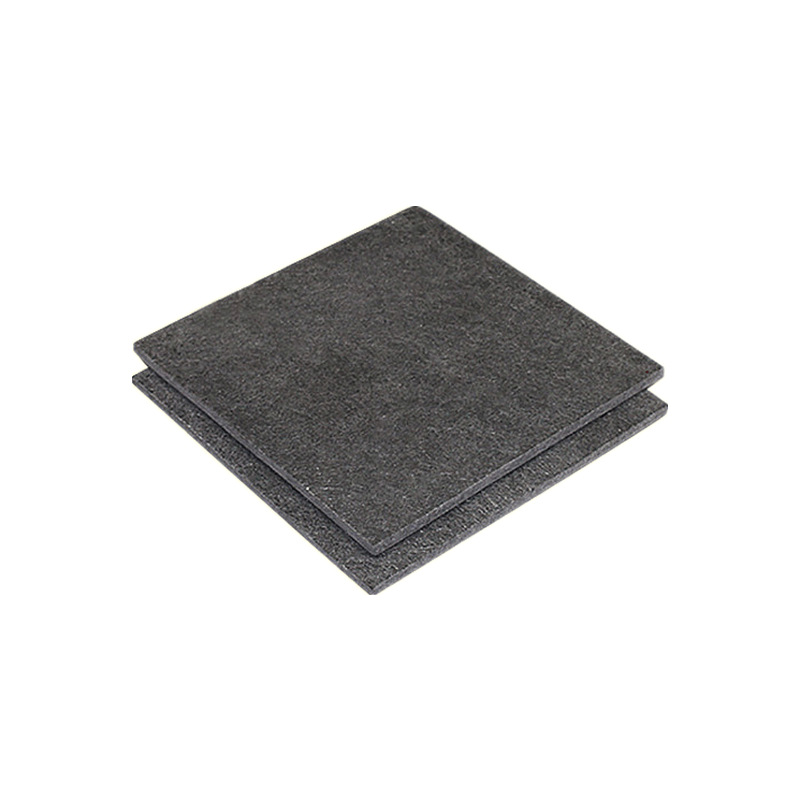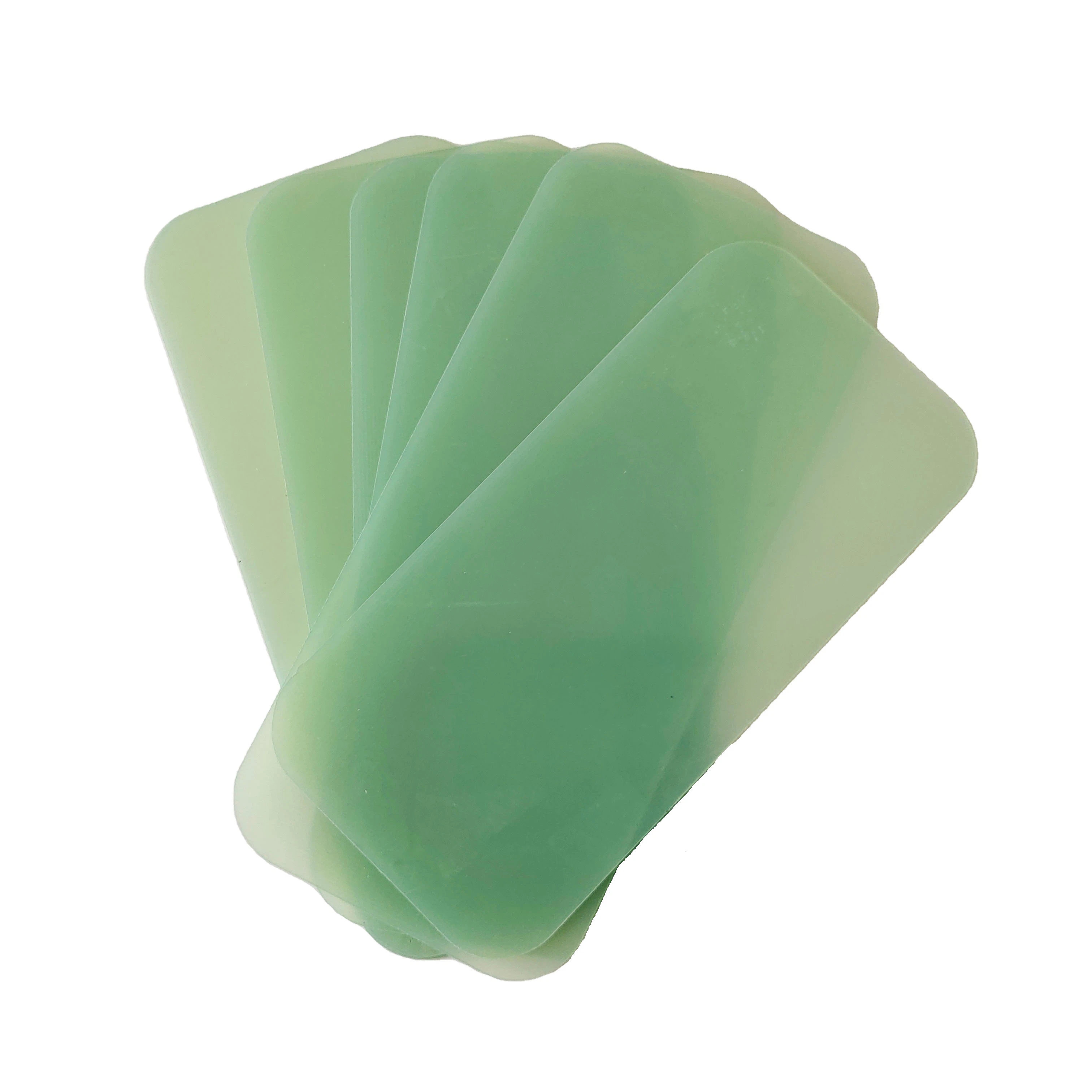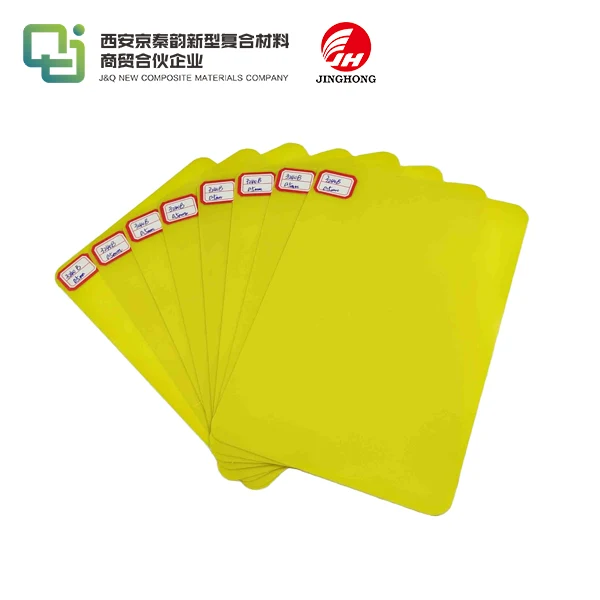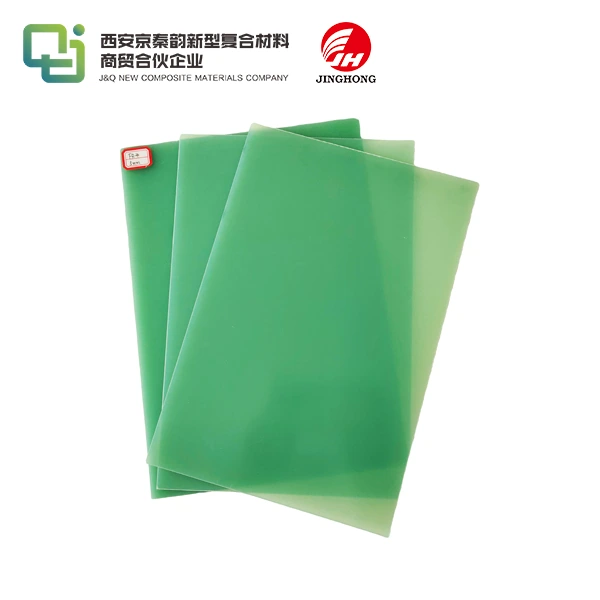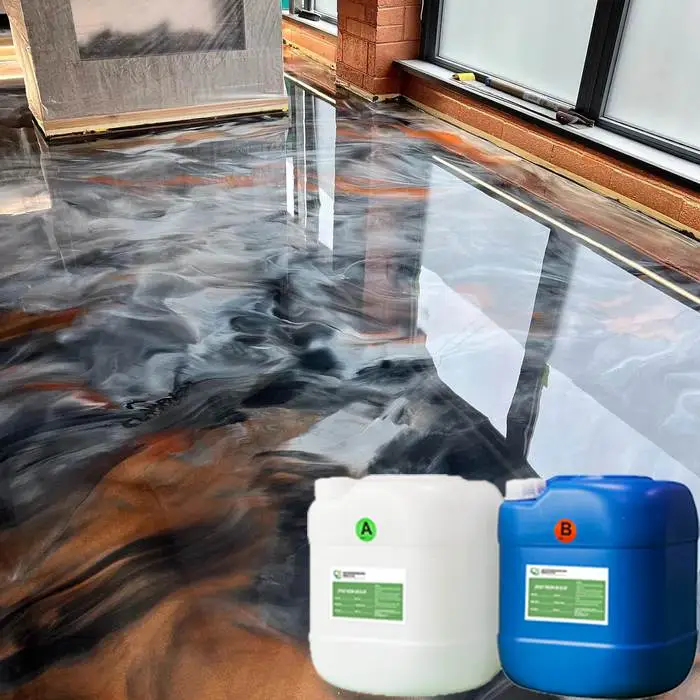Key Applications of Phenolic Resin Board in Industry
2025-05-13 17:24:33
Phenolic resin board, a versatile and robust material, finds extensive applications across various industrial sectors. Its exceptional properties, including high strength, fire resistance, and excellent thermal insulation, make it an indispensable component in manufacturing, construction, and transportation. From electrical insulation to aerospace components, phenolic resin board serves as a crucial material in enhancing safety, efficiency, and durability in numerous industrial applications. Its ability to withstand extreme temperatures, resist chemical corrosion, and maintain dimensional stability under varying conditions has positioned it as a go-to solution for engineers and designers seeking reliable and high-performance materials. As industries continue to evolve, the demand for phenolic resin board in specialized applications is expected to grow, highlighting its significance in modern industrial processes.
Thermal Insulation Applications
Building and Construction Insulation
Phenolic resin board is highly regarded in the construction industry for its outstanding thermal insulation performance. With exceptionally low thermal conductivity, it effectively reduces heat loss in walls, roofs, and floors. Its inherent fire resistance enhances building safety, while its durability ensures stable insulating performance over time, contributing to long-term energy savings and consistent indoor comfort in both homes and commercial spaces.
Industrial Equipment Insulation
Phenolic resin board is widely used in industrial environments for insulating high-temperature systems such as boilers, reactors, and furnaces. Its strong thermal stability, flame resistance, and low thermal conductivity help prevent heat loss, maintaining process temperatures more effectively. This not only enhances energy efficiency but also contributes to safer operations and lower maintenance costs. Its durability under harsh conditions makes it a reliable choice for long-term insulation needs across various industrial sectors.
Cold Storage Facilities
Phenolic resin board is commonly used in cold storage and refrigerated transport due to its superior insulation and moisture resistance. It helps maintain consistent low temperatures, which is critical for preserving the freshness of perishable items like food and pharmaceuticals. By minimizing thermal exchange and preventing condensation, it also improves energy efficiency and lowers refrigeration costs, making it a reliable material in cold chain logistics.
Electrical and Electronics Applications
Circuit Board Substrates
In the electronics industry, phenolic resin board is widely used as a base material for printed circuit boards due to its strong electrical insulation and thermal stability. It maintains structural integrity under heat and humidity, ensuring consistent performance in a range of environments. Its low cost and ease of fabrication make it suitable for mass production, while its flame-retardant nature adds a layer of safety to consumer and industrial electronic products.
Electrical Switchgear Components
Phenolic resin board is widely used in the electrical power distribution industry, particularly in the construction of switchgear components. Its high mechanical strength, excellent electrical insulation, and resistance to heat and electrical arcing make it ideal for critical parts like switchgear panels, busbar supports, and insulating barriers. These elements help prevent electrical faults, enhance operational safety, and ensure long-term durability in demanding environments. As a result, phenolic resin board contributes significantly to the reliability and performance of modern power distribution systems.
Transformer Insulation
Phenolic resin board is widely used in transformer insulation due to its excellent electrical and mechanical properties. With high dielectric strength, it effectively insulates transformer windings and cores, preventing electrical breakdowns. Its superior thermal stability allows it to withstand high operating temperatures, while its resistance to oil and moisture ensures consistent performance and durability. These features make it a reliable choice for maintaining transformer efficiency and safety in demanding environments.

Aerospace and Transportation Applications
Aircraft Interior Components
The aerospace industry relies on phenolic resin board for manufacturing various aircraft interior components. Its lightweight nature, coupled with high strength and fire resistance, makes it suitable for creating cabin panels, overhead compartments, and flooring systems. The material's ability to meet stringent aviation safety standards while providing excellent acoustic properties contributes to enhanced passenger comfort and safety.
Automotive Heat Shields
In the automotive sector, phenolic resin board is utilized in the production of heat shields. Its exceptional thermal insulation properties and resistance to high temperatures make it ideal for protecting sensitive components from engine heat. The material's ability to withstand vibrations and maintain its structural integrity under extreme conditions ensures reliable performance in automotive applications.
Railway Car Interiors
Phenolic resin board plays a crucial role in the construction of railway car interiors. Its fire-resistant properties, combined with its durability and ease of maintenance, make it an excellent choice for wall panels, ceiling systems, and seating components. The material's ability to meet strict fire safety regulations while providing aesthetic appeal contributes to the overall safety and comfort of railway passengers.
Conclusion
Phenolic resin board's versatility and exceptional properties make it an invaluable material across various industrial applications. Its ability to provide thermal insulation, electrical protection, and fire resistance while maintaining structural integrity under challenging conditions has solidified its position as a crucial component in modern industry. As technological advancements continue to drive innovation, the applications of phenolic resin board are likely to expand further, offering new solutions to complex industrial challenges and contributing to improved efficiency, safety, and sustainability across diverse sectors.
Contact Us
To learn more about our high-quality phenolic resin board products and how they can benefit your specific industrial application, please don't hesitate to reach out to our experienced team. Contact us at info@jhd-material.com for personalized assistance and expert guidance on implementing phenolic resin board solutions in your projects.
References
1. Johnson, R. M. (2019). Advanced Insulation Materials in Building Construction: A Comprehensive Review. Journal of Sustainable Architecture and Civil Engineering, 24(3), 112-128.
2. Zhang, L., & Chen, X. (2020). Phenolic Resin Composites in Electrical Applications: Current Status and Future Prospects. IEEE Transactions on Dielectrics and Electrical Insulation, 27(5), 1532-1545.
3. Thompson, A. K., & Williams, S. (2018). Thermal Management Solutions for Aerospace Applications: A Comparative Study of Insulation Materials. Aerospace Technology and Engineering, 42(2), 87-102.
4. Nakamura, H., & Tanaka, Y. (2021). Fire-Resistant Materials in Railway Rolling Stock: Advancements and Challenges. International Journal of Rail Transportation, 9(4), 301-317.
5. Garcia-Lopez, J., & Martinez-Sanchez, M. (2022). Innovations in PCB Substrate Materials: Enhancing Performance and Reliability. Journal of Electronic Materials, 51(8), 4123-4139.
6. Patel, R. V., & Desai, A. K. (2020). Thermal Insulation in Industrial Processes: Energy Efficiency and Cost-Effectiveness Analysis. Energy and Buildings, 215, 109873.

